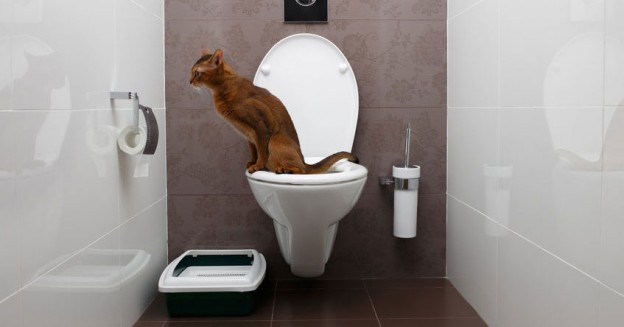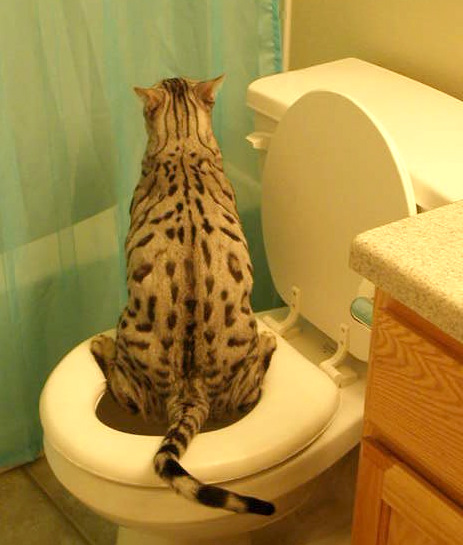An Perils of Animal Waste in the Toilet
An Perils of Animal Waste in the Toilet
Blog Article
What're your thoughts with regards to Why you should never flush dog poop down the toilet?

When it comes to taking care of waste, especially animal waste, many individuals commonly turn to the practical choice of flushing it down the bathroom. However, this relatively simple service can have major effects for the environment and public health. In this short article, we'll discover why flushing pet waste down the bathroom is a negative idea and offer different techniques for appropriate disposal.
Intro
Appropriate garbage disposal is critical for preserving environmental sustainability and public health. While it may appear harmless to purge animal waste down the toilet, it can result in numerous issues, both for the environment and human wellness.
Risks of flushing animal waste
Environmental effect
Flushing pet waste presents harmful germs and virus into waterways, which can negatively influence aquatic environments. These virus can pollute water resources and harm marine life, disrupting fragile communities.
Public health worries
Animal waste contains hazardous microorganisms such as E. coli and Salmonella, which can posture serious health risks to human beings. Purging animal waste down the toilet can pollute water materials, resulting in the spread of illness and infections.
Alternatives to flushing
Rather than purging animal waste down the toilet, there are numerous alternative disposal approaches that are much more eco-friendly and hygienic.
Composting
Composting animal waste is an environment-friendly means to dispose of it. By composting, organic matter is broken down right into nutrient-rich dirt, which can be used to feed gardens and plants.
Landfill disposal
Throwing away animal waste in a garbage dump is another alternative. While not as environmentally friendly as composting, it is a more secure choice to flushing, as it prevents the contamination of water sources.
Pet waste disposal systems
There are specific pet waste disposal systems readily available that securely and hygienically deal with animal waste. These systems usually use enzymes to break down waste and eliminate odors.
Steps to appropriate animal waste disposal
To make certain appropriate disposal of animal waste, follow these actions:
Scooping and nabbing waste
Consistently scoop and bag pet waste utilizing biodegradable bags. This stops waste from infecting the setting.
Making use of marked waste bins
Dispose of bagged animal waste in designated waste containers, such as compost bins or land fill containers. Prevent flushing it down the toilet in all prices.
Cleaning up litter boxes and pet dog areas frequently
Regularly clean can and pet locations to avoid the accumulation of waste and germs. Usage pet-safe cleaning items to keep hygiene.
Benefits of correct disposal methods
Adopting proper disposal techniques for pet waste supplies several benefits:
Minimized environmental pollution
Appropriate disposal techniques reduce the risk of environmental pollution, protecting waterways and communities from contamination
Decreased danger of water contamination.
By avoiding flushing pet waste down the bathroom, the danger of water contamination is substantially lowered, protecting public health.
Improved cleanliness and hygiene
Proper disposal methods advertise better cleanliness and health, developing a much safer environment for both human beings and pets.
Final thought
To conclude, purging pet waste down the commode is harmful to the atmosphere and public health. By embracing alternative disposal techniques and complying with correct waste management methods, we can lessen the unfavorable influence of pet waste and contribute to a cleaner, much healthier earth.
What To Do With Dog Poo – The Do's And Don'ts Of Disposing Of Faeces
Dog poo bins
Some councils provide dedicated dog waste bins in popular dog-walking areas that can take dog poo that has been bagged but you can legally dispose of dog waste in any public litter bin, as long as it is securely bagged. This also applies to your wheelie bin at home.
Do not flush
Water companies do not recommend flushing dog faeces down the toilet because certain parasites can survive the water processing treatment and are potentially harmful to humans. You should also never consider flushing dog poo that has been bagged down the toilet as the bags will not break down and instead create severe blockages in the sewage system.
In the woods
The Forestry Commission promotes a ‘stick and flick’ method for dealing with waste in the woods. This means finding a stick and using it to flick any poo from off the path so that it is out of the way of other walkers. You could also bury it as long as it is not in an area where there might be livestock.
Livestock
Parasites found in dog poo can be transmitted to livestock if they inadvertently eat infected faeces that has been left on grazing land. This could result in the death of sheep or abortion in cattle so you should always make sure you pick up your dog’s waste in fields where livestock could be present.

Regularly clean can and pet locations to avoid the accumulation of waste and germs. Usage pet-safe cleaning items to keep hygiene.
Benefits of correct disposal methods
Adopting proper disposal techniques for pet waste supplies several benefits:
Minimized environmental pollution
Appropriate disposal techniques reduce the risk of environmental pollution, protecting waterways and communities from contamination
Decreased danger of water contamination.
By avoiding flushing pet waste down the bathroom, the danger of water contamination is substantially lowered, protecting public health.
Improved cleanliness and hygiene
Proper disposal methods advertise better cleanliness and health, developing a much safer environment for both human beings and pets.
Final thought
To conclude, purging pet waste down the commode is harmful to the atmosphere and public health. By embracing alternative disposal techniques and complying with correct waste management methods, we can lessen the unfavorable influence of pet waste and contribute to a cleaner, much healthier earth.
What To Do With Dog Poo – The Do's And Don'ts Of Disposing Of Faeces
Dog poo bins
Some councils provide dedicated dog waste bins in popular dog-walking areas that can take dog poo that has been bagged but you can legally dispose of dog waste in any public litter bin, as long as it is securely bagged. This also applies to your wheelie bin at home.
Do not flush
Water companies do not recommend flushing dog faeces down the toilet because certain parasites can survive the water processing treatment and are potentially harmful to humans. You should also never consider flushing dog poo that has been bagged down the toilet as the bags will not break down and instead create severe blockages in the sewage system.
In the woods
The Forestry Commission promotes a ‘stick and flick’ method for dealing with waste in the woods. This means finding a stick and using it to flick any poo from off the path so that it is out of the way of other walkers. You could also bury it as long as it is not in an area where there might be livestock.
Livestock
Parasites found in dog poo can be transmitted to livestock if they inadvertently eat infected faeces that has been left on grazing land. This could result in the death of sheep or abortion in cattle so you should always make sure you pick up your dog’s waste in fields where livestock could be present.

As a reader on Don't Flush Your Pets Poo Down The Loo, Vet Warns, I thought sharing that piece of content was a smart idea. Liked our post? Please quickly share it. Help another person discover it. Many thanks for your time. Come back soon.
About Report this page